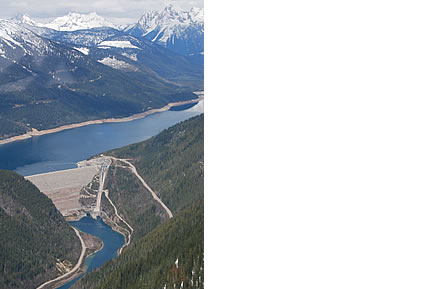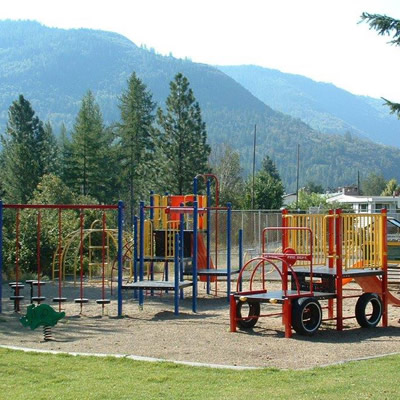CBT Launches Basin-wide effort to raise awareness of the Columbia River Treaty

Duncan Dam – The 1967 Duncan Dam, at the north end of Kootenay Lake, was the first of three dams built in Canada under the Columbia River Treaty. Photo courtesy of BC Hydro.
Columbia Basin Trust (CBT), in partnership with the CRT Local Governments’ Committee, is launching a Basin-wide effort to raise awareness and understanding of the Columbia River Treaty (CRT). Starting in October CBT and local government partners will host a series of information sessions to help Basin residents learn about the past and think about the future.
“These information sessions will help people who live in the Canadian portion of the Columbia Basin better understand what the CRT is, how it works and what considerations exist for the future,” said Neil Muth, CBT president and CEO.
The CRT is an international agreement between Canada and the United States to co-ordinate flood control and optimize hydroelectric power generation on both sides of the border. Under the 1964 treaty, three dams were constructed in Canada—Mica, Duncan and Hugh Keenleyside. A fourth dam, Libby, was constructed in Montana.
The year 2024 is the earliest date either Canada or the U.S. may unilaterally terminate the current treaty, provided a minimum of 10 years’ notice is given in 2014. While no decision has been made by either Canada or the U.S. on the future of the current treaty, given the importance of the issues, and the approaching date of 2014, both countries are now conducting studies and exploring future options for the CRT.
“Our primary role with respect to the CRT is to act as an information resource for Basin residents,” said Muth, adding that CBT does not make decisions with respect to the CRT. “Consultation on the CRT is a Provincial responsibility.”
These community information sessions, as well as four online information sessions, videos, documents and other resources prepared by CBT will help residents learn more about the CRT. Visit www.cbt.org/crt.
CBT delivers economic, social and environmental benefits to the residents of the Columbia Basin. To learn more about CBT programs and initiatives, visit www.cbt.org or call 1-800-505-8998.
Additonal Information Links:
1. This short video presents key facts on CRT history
2. Fact sheet that outlines relationship between CBT and the CRT, and
CBT's role
3. Brochure that provides an overview of the CRT
Backgrounder
Columbia River Treaty Information Session Dates and Locations:
- Jaffray, Tuesday, October 4
- Cranbrook, Thursday, October 6
- Castlegar, Wednesday, October 19
- Trail, Thursday, October 20
- Revelstoke, Monday, November 7
- Golden, Tuesday, November 8
- Nakusp, To be determined
- Nelson, To be determined
- Creston, To be determined
- Kaslo, To be determined





Comments